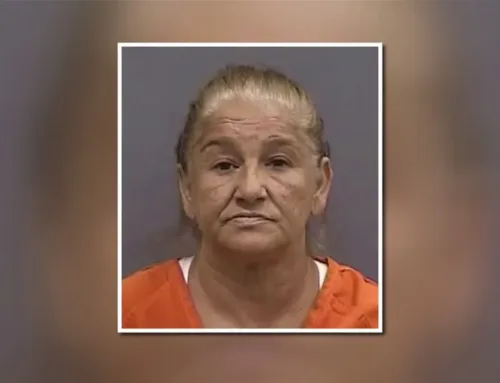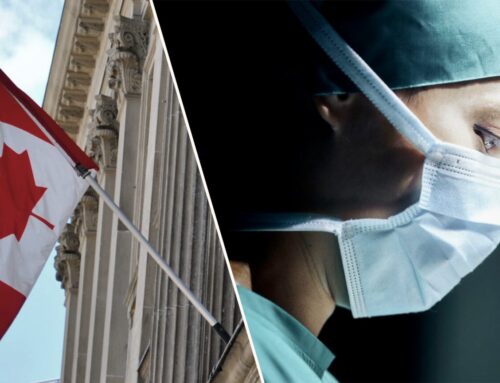September 1, 2021
-CBC
Starting today, proof of vaccination will be as much of a daily necessity in Quebec when leaving the house as a wallet or house keys.
Dubbed the COVID-19 vaccination passport, digital or paper documentation will be required to take part in much of public life, from having a beer to playing badminton.
Other provinces — including British Columbia, Manitoba and Ontario — are poised to implement their own systems in the days and weeks to come.
In Quebec, the list of non-essential activities prohibited to those without a vaccine is wide-ranging: restaurants, movie theatres, gyms, team sports and indoor pools are all now off limits to those who aren’t adequately vaccinated, or granted a rare exemption for medical reasons. (A full list of places and activities where the passport applies is available here.)
Many public health experts have welcomed the passport as a useful tool to help contain the spread of COVID-19, particularly in congregate settings, and encourage people to get vaccinated, as Quebec and the rest of the country enters a fourth wave of the pandemic.
“People want to be vaccinated and they want to have a normal life,” Health Minister Christian Dubé said in announcing the system. “We went through hell in those first three waves.”
Observers are also keen to see how the system works in practice.
Being first out of the gate in Canada, Quebec’s approach could serve as a model for the country, said Kerry Bowman, a University of Toronto professor who teaches bioethics and global health.
In their scope, Bowman said such systems represent an “unprecedented” form of public health policy. He likened it to the Second World War in its emphasis on collective — rather than individual — rights.
But he worries that a system like the one in Quebec risks pushing unvaccinated people to the margins of society and further inflaming tensions. Others will get vaccinated, or already have, even though they don’t want to, in what amounts to a form of “coercion,” he said.
“Now, look, is it justified under this difficult emergency that we’re in? I hope it is.”
And particularly given the presence of the more transmissible delta variant of the coronavirus, Bowman added, a vaccine passport is not necessarily sufficient to end the pandemic.
“We’re kind of approaching it as if it’s this absolute firewall — and it’s not,” he said.
Countries and jurisdictions around the world — including the European Union, Israel and U.S. cities, like New York and San Francisco — have begun implementing vaccination credentials to varying degrees, whether for travel or daily life.
‘Passport to freedom’
While additional public measures will remain in place in Quebec after Sept. 1, Dubé has framed the system as a “passport to freedom” and a way to avoid another round of lockdown measures.
Dubé had warned for months such a system could be put into effect in the fall if COVID-19 cases climbed.
The provincial government has pointed to Quebec’s high vaccination rate as proof that the majority of people are on board with the system. Across Quebec, 86 per cent of residents over the age of 12 have received at least one dose of vaccine and 79 per cent have received both.
And the majority of those people have downloaded their government-issued quick-response (QR) code, which gives you proof of your vaccination status.
Critics, however, have voiced concern about how the passport came to be and its reach going forward.
All three opposition parties at the province’s National Assembly called for a debate at the legislature, to hear from experts on the science and ethics of such a system.
Premier François Legault refused, saying he didn’t want to give a platform to conspiracy theorists.
The new rules are by decree, with the government still operating under a state of emergency that allows them to quickly put in place new rules without debate at the National Assembly.
In the days leading up to the launch of the vaccine passport, the QR codes of several prominent politicians were hacked.
The province is planning to update the app to address the issue.
“They are accustomed right now to governing by decree,” said Parti Québécois health critic Joël Arseneau. “And that has an impact on the level of preparation and the level of thinking ahead regarding problems that might occur.”
Lack of debate
Consultations could have helped ease concerns among vulnerable groups, such as seniors and undocumented workers, said Catherine Descoteaux, co-ordinator of the Quebec-based civil liberties group Ligue des droits et libertés.
She also pointed out that when the province initially floated the idea of a vaccine passport, it was limited only to areas with a high level of cases. In the end, it will be required across the province.
“This is a huge concern for us,” she said of the lack of parliamentary hearings.
With a policy such as this one, Bowman said the old cliché applies: “The devil is in the details.”
He said it will be worth watching exactly how the passport system will be enforced in the weeks and months to come.
Staff at restaurants and other businesses have a difficult task ahead, Bowman added.
“Are they trained for it? Do they have support for it? And in some cases — and we have seen this in Quebec and throughout the country and the world — they are likely going to be dealing with some very, very angry people,” he said.
“And so how all of that is going to be brokered is a big consideration.”




